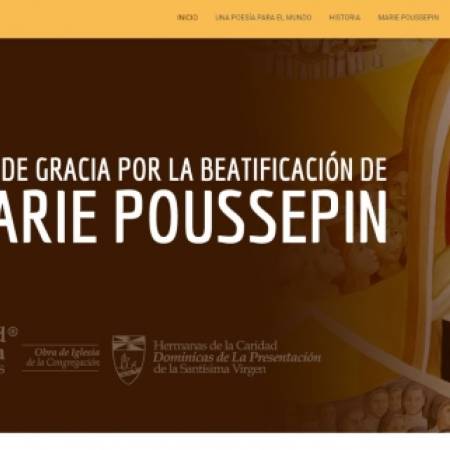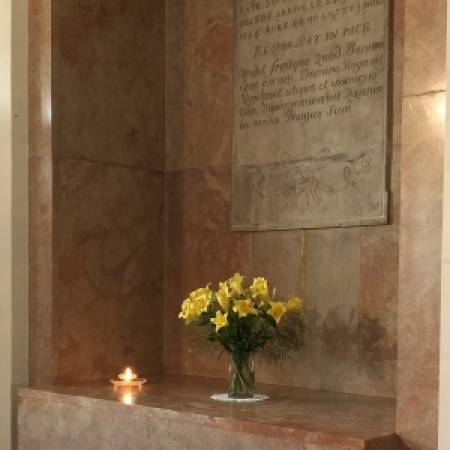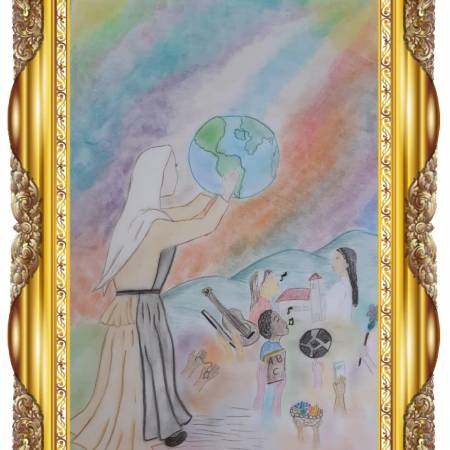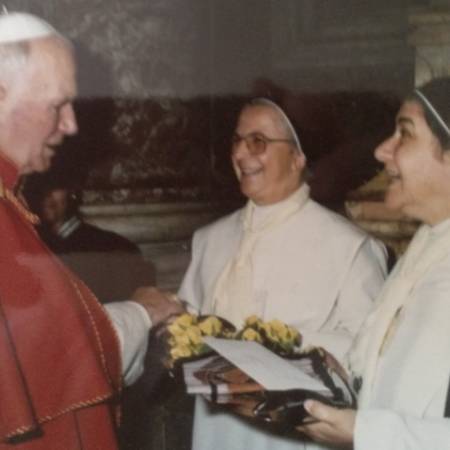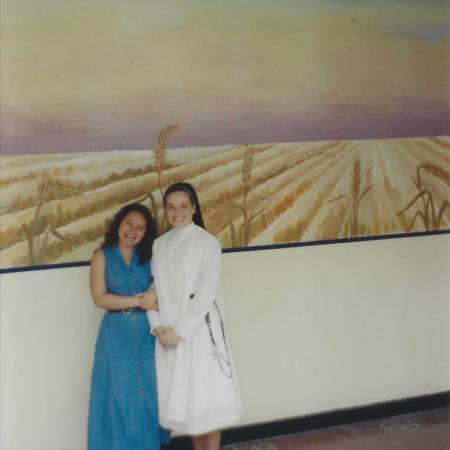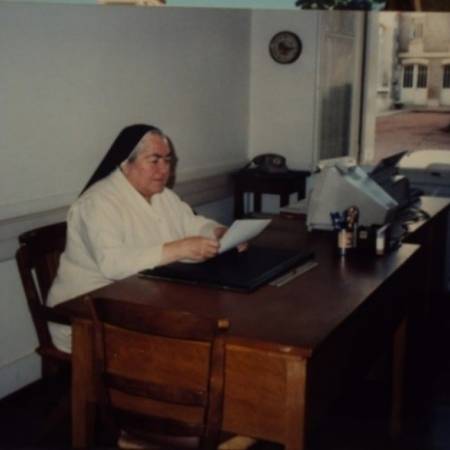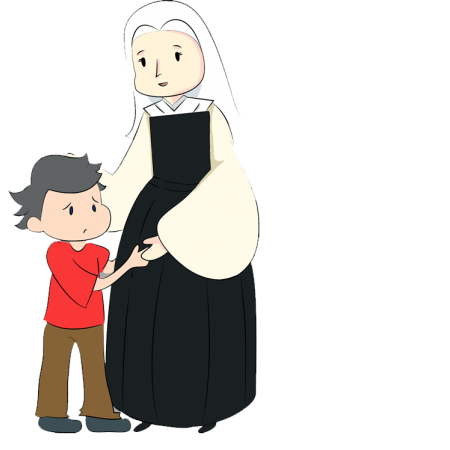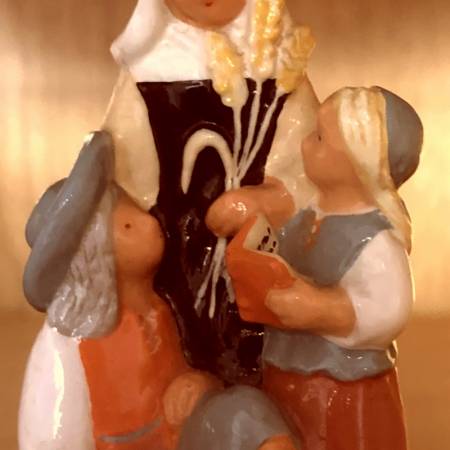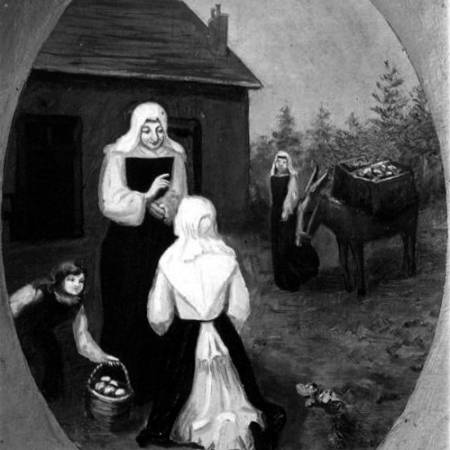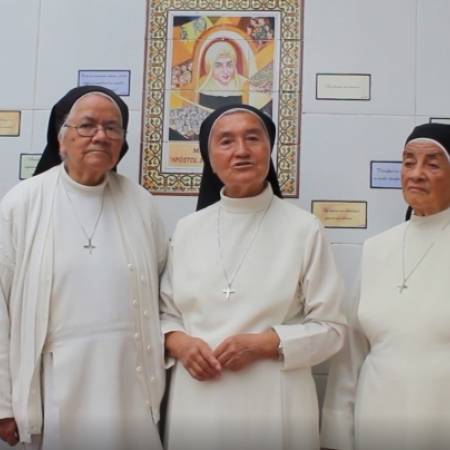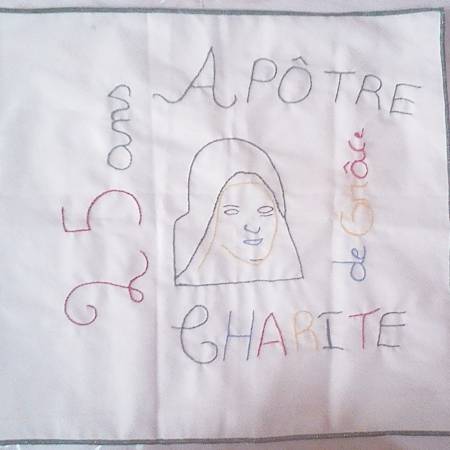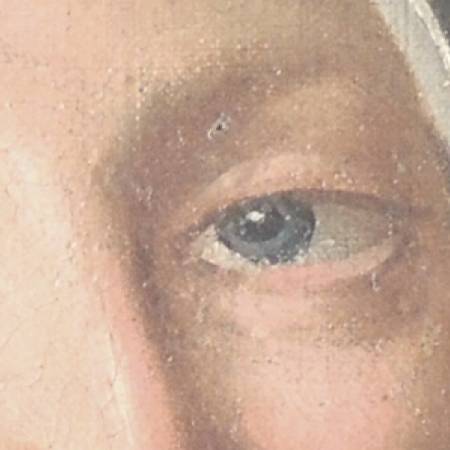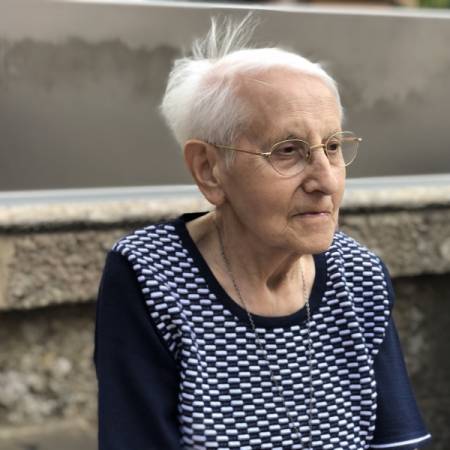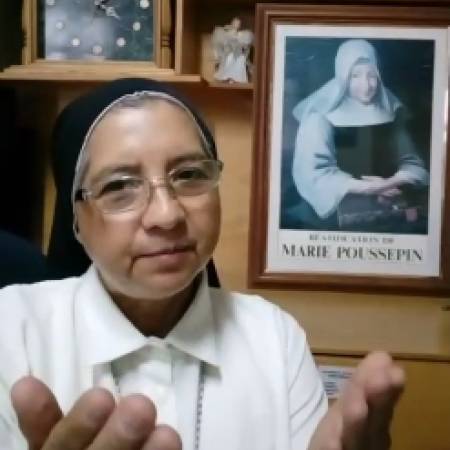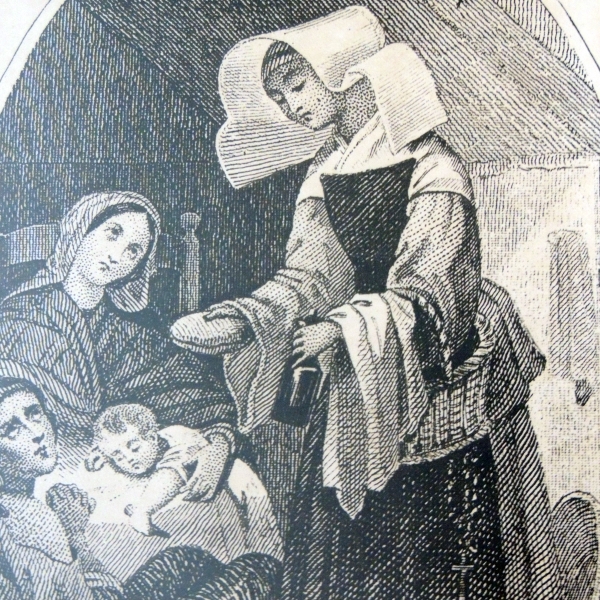“Their aim is to imitate by their conduct, as much as they can, the life that Our Lord led on earth, especially His charity for his Father and for men”.
Introduction
Having seen what was good in the eyes of God, she accomplished it. It is this life of holiness which is the focus of our thanksgiving to God during this jubilee year of her beatification. To celebrate a year of grace means to express our gratitude to the Providence of God, who has kept vigil on his servant and her work, since its foundation. It is also for us an occasion to review our commitment to perpetuate this great work of charity and look at the past with thanksgiving and the future with hope. To do this, all of us are invited to set out again from the Social Apostle of Charity to bring a look of renewed mercy to our world which is in the grip of new crises.
In the meanwhile, to look at the question of the creative charity of Marie Poussepin, we have to explore the richness of her whole charismatic life and it is beyond us, because, by letting herself be set aside, it is Christ who lived in her, as St. Paul would say.(cf. Ga 2: 20)
The following lines are just a way to revisit this creative charity of our mother and to invite us to spend without counting to keep this divine virtue, as she recommends to us.
The creative charity of Marie Poussepin
« To imitate the life that Our Lord led on the earth, » to give one self to all that charity inspires, is an end which can be realized only by a great ingenuity, a creativity which is always vigilant to study the needs of the times and by a very solid life of faith centered on Jesus Christ. To see what is good in the eyes of God and to accomplish it, requires audacity, a spirit of discernment and a special attention to the calls of God. This is what Marie Poussepin did throughout her life.
In fact, from her young age onwards, Marie Poussepin received from God this special grace which will impregnate her whole life; she understood very early that the whole Gospel was contained in loving God and loving one’s brother (Mt 22: 37-39). She was aware that she must be in the house of the Father and be busy with his works (Cf. Lk. 2: 49.; Her commitment in the parish following her mother to the sick poor of the confraternity of charity of Saint Vincent de Paul and her function as god mother, all this before she was 11 years old and all along her life, witness to it. This child was already consecrated to God in the depths of her being, as Mary in her “presentation at the temple.” By the way, it is through this apostolate lived with fidelity and abnegation that the Providence of God increased in her the exercise of charity and prepared her for a new vocation. (Cf. MP or the exercise of charity, by Bernard Preteseille page 63)
Apart from her apostolic engagement, Marie Poussepin, with a spirit of clear-sightedness like Solomon and a remarkable discernment, transformed the traditional industry and commerce of her native town. She knew to put together the spiritual and the temporal in an efficacious charity. We already see in her the image of the Social Apostle of Charity who, far beyond the work to which she is committed, seeks to make man stand up for the glory of God. It is good what the Church aims at, with respect to work (cf. Social Doctrine of the Church, dignity of work)
At the age of forty-two, Marie Poussepin leaves her family urged by Charity, for a future which only the Providence can define, for a future where everything has to be created, for Sainville, where, the misery was great, for not to say anything more! What a heroism! She will unfold herself there with audacity for the establishment of this work, which from the beginning is a community of the Third Order of St. Dominic to which she will bequeath all that she is and has. The primary aim of her community is the service of charity; a charity which intends to be inventive for the service of the parish, to educate youth and care for the sick poor. On this journey of faith, our mother did not lack creativity at all; she saw and she accomplished.
For a woman of her time, to do apostolic services in a religious community was a novelty, a creativity, going against the very practices of the Church. It is to this rude path that our mother commits herself, of facing the ecclesial and administrative authorities for the recognition of her work and of safeguarding the identity of this work.
Facing a woman so determined, we can ask ourselves what kind of a heart she had. Certainly, a human heart, but a heart totally given to God, a heart in the image of the God of mercy, who cannot remain indifferent seeing the misery of Human Beings.
It is also a heart in the image of the heart of the Son, who detached himself from his divine state, to be espoused to our human nature and to do the will of the Father (Cf. Ph 2: 6-8). In the same way, Marie Poussepin attained total detachment and made herself available to God and to her brothers and sisters. Though she was rich, she made herself poor to dwell among the poor of Dourdan and particularly those of Sainville. It is the work of God, she says, who made use of a poor creature.
This service of charity was sustained by a solid spiritual life, in which she insists on « the intensity of contemplation directly related to the proclamation of the Word and the service of charity, the search for Truth, the importance of liturgy and life in common. » (Original vision) She ensures that under the protection of the Holy Virgin, they can hope for everything. (cf. R1) With such strong eminent visions, she succeeded in making charity the soul of her community.
The creative charity of the daughters of Marie Poussepin
Marie Poussepin left us a precious heritage, that she knew well how to safeguard during her life, from all stains and from becoming outdated: The charism and the institution. Both are the works of the Holy Spirit and they require from us a commitment to creative fidelity in order to perpetuate and transmit them (cf. MP&C 15).
“Faithful to her missionary vision, the Congregation attempts to live and extend this service of charity that is proclamation of the Word whose source is contemplation.” (C81)
1. Charity, the soul of the Community
“This is how all will know that you are my disciples, if you have love for one another.” (Jn13 : 35). It is in this spirit that our mother desired with her whole heart that charity must be the soul of the community. She is convinced that “charity must be lived in the heart of the world with all the riches and strength of a life in community.” Thus, our apostolic dedication must draw its dynamism from a community molded by charity, where each sister, reflecting the poor from all aspects, becomes the object of an inventive charity. She reminds us in the Rules of Sainville in chapter II that “charity which should be found among persons in Community, must be based on that which Jesus Christ had for men and not based on relationships or alliance, nor should be according to mood or favors received or to be received, and it should not seek one’s own interest.”
We are then called to reread with humility our fraternal life and to work to make our communities into houses and schools of communion capable of recognizing, accepting, valuing and integrating differences, (Document of 55th General chapter, page 13) for a renewed spirituality following Jesus whose love is creative and given. It is this love lived as a family, through simplicity, work and poverty, that maintains in us the missionary zeal.
2. Charity at the service of our brothers and sisters
Thus, for three centuries, brave women who followed Marie Poussepin, safeguarding the charism, being faithful to the spirituality and adapting to the historical circumstances, have known to respond to the needs of their brothers and sisters, looking for ways and means to imitate the life that Our Lord led on the earth. Today also, « evangelization urges us to commit ourselves in the struggle for human dignity and the complete liberation, in Christ, of the poorest of our brothers and sisters.” (Cf. C 86).
It is our turn to discern the new calls and to respond to them with creativity, not in haste, but through attentive listening to God. It is up to us to hold high the flame of charity, to indicate the imperishable work of the Social Apostle of Charity by the authenticity of our commitment to be her eyes and hands, to perceive what is good and to accomplish it according to the grace that God gives us. It is up to us to incarnate “the hymn to charity” which will never pass away. (cf. ICor. 13)
What our mother did, more than 300 years back, remains very much present today. Men, women and children still suffer from sickness, poverty, ignorance and slavery in its different forms. Today in the ordinary social milieu of our big cities and our country villages, more vulnerable persons wait for our presence and our support to live freely and responsibly with the certitude that God loves them .(cf. Ratio formationis pg. 13) These are the new “Sainvilles”, these are the new peripheries where we are called to carry the knowledge of Jesus Christ and his mysteries. Does it mean to say that we are not there yet? Certainly not, but it is our originality, our creativity that must keep us awake to the calls of our world to commit ourselves to imitate as much as possible the life that Our Lord on the earth.
For the continuity of this work, each structure and each community according to the realities of the places, each sister and each laity according to the grace that God gives her/him is called “to go beyond the borders to revitalize life and mission,” to face the future with hope. (Cf. Theme of 55th General Chapter).
Marie Poussepin kept us on guard against the “cloister”; she sent us to the other and exhorts us to an active and inventive charity.
In his apostolic exhortation “Evangelii Gaudium”, Pope Francis reminded us also that the dynamism of the Church is that of “going out”. Abraham accepted to go to a new land (cf. Gn12: 1-3) ; Moses submitted himself to a sending by God and made the people to go out toward a promised land (Ex3: 10.17) ; today, it is Jesus who sends us as missionaries who goes out, like he sent out the disciples, “Go”.
In this spirit of the Church, following the example of our mother who was filled with audacity and creativity, we may have to leave our small comforts, cross the boundaries of our hearts and our environment and take courage to go to the peripheries to meet the other because it is the very purpose of the work that she entrusted to us. We have to be ready to reconsider our different missions today and make “the poor” once again the center of our projects and lives.
Then let us look at very closely the purpose of our institute today, a community of the Third Order of St. Dominic in this 21st century for:
- The service of the parish
At Sainville, Marie Poussepin was available for the service of the Church, in the exercise of charity, working closely with its authorities to do the spiritual and bodily works of mercy. It is as its continuation that we respond to the calls of the Church, always remaining faithful to the spirit of our mother. It is in these places of mission that we give form to the instruction of the youth and services to the sick poor and the marginalized of all kinds.
- The instruction of the youth
It keeps all its originality, from the spiritual as well as from the intellectual point of view. In a century, when the sacred seems to be pushed back to the second level, a purely Dominican form of charity to be developed, is the sharing of the Word. Pope Francis, through his apostolic letter “ Aperuit Illis” exhorts us to render the Word of God accessible to all and to enter into relationship with it. This is what Marie Poussepin reminds us without stopping that the Sisters must never neglect to nourish themselves on the Scriptures; that they must never let a day pass by without giving the required time to reading, so that they may be “ filled with the truths” which they are to live and to teach. (Original Vision)
In our days, this apostolate which is teaching, requires from us an awakened and critical spirit to face the values supported and taught by our States. Then the urgency is no more the simple education in faith, even less, the instruction already acquired, but the education of human values which are at danger. We can, among other things, look at some themes which are values to be safeguarded like “paternity and filiation”, “sexual difference”, “gender”, “education on emotions” and non – sexual education… , which are related to the unity, dignity, and integrity of human beings and family, but which are approached from an angle which tends to destabilize them. The media, whose misuse, shakes up the lives of a good number of young people; the dangerous clubs which behind well- packaged attractions, present our youth with paths for easy success…It is then time that our charity in this field makes itself inventive to warn the persons and accompany them in their search for truth.
Marie Poussepin invites us to listen again her last recommendations, the ones about keeping “the zeal for the instruction of the poor girls who could be in spiritual as well as in material need”, and “the spirit of poverty and love of work”.
- The service of the poor (the sick and those at the margins)
Marie Poussepin reminds us that one of the principal orientations of her work is to give to the sick all the corporal assistance in their power, without forgetting that they are to strive above all, to console them spiritually and to teach them the truths of salvation. (Cf. Original Vision)
The service to our poor brothers and sisters demands from us a real sacrifice, first of all to identify ourselves with them, then, to let ourselves be moved by their misery, and finally to commit ourselves to be sincerely close to them through simple and efficacious actions, just as Marie Poussepin welcomed Marie Olivier and took care of her till her death.
In our days, through the big developments in technology, manipulation of life becomes very disturbing and it questions us enormously. Questions on bioethics are asked and a consequent taking of position and an appropriate accompaniment of the persons, are expected from us.
Pope Francis reminds us on the occasion of the 27th day of the sick, the need for health ministry in these terms: “Caring for the sick requires professionalism, tenderness, straightforward and simple gestures freely given, like a caress that makes others feel loved. This was the work of Marie Poussepin and it is to this that she invites us today.
Besides, in some of our countries of insertion, the insecurity and the laws that affect life, can slow down in some way our missionary spirit and reduce us to a passivity in the face of these distressing situations. But we have to dare, because love has no limits. If we rarely get martyrs in our day, it is because we are very much in the shelter. For sure, there are situations where we cannot do anything, God knows it and our prayers in these cases give value to our actions. But at the same time, we have to become aware that our charity wants to be more inventive in this domain and that we must confront with audacity and realism the different evils that undermine our society so that we can ameliorate our services in favor of the poor.
We have to be deprived of ourselves and our riches and place our trust in the Providence of God so that he can open our eyes and dispose our hearts to a more active mercy, to go beyond our borders in favor of the deprived. Marie Poussepin having disposed of all that could belong to her, have nothing in reserve, she does not possess anything. (cf. Last Testament) It is only such a detachment that can make us friends of the poor.
Conclusion
”She saw what was good in the eyes of God and accomplished it.” It is the resume of a life totally given, which we, the daughters of the Social Apostle of charity wish to imitate in daily life. To live and die for the service of the Church in the exercise of charity. This service of charity which is proclamation of the Word and whose source is contemplation. (C81) May the master of the harvest preserve in us the vitality of the Charism which knows to invent the response of charity that is required at the present moment.
Some points for our reflection (structures, communities, sisters, laity)
- For a more radiant fraternal life, how do we value « our differences » referring to the recommendation of Marie Poussepin who asks us not to base our charity on whatever relationships we may have?
- Our family characteristics of “simplicity, work and poverty” are they daily-renewed realities which distinguish us as daughters and sons of Marie Poussepin in our community and places of work?
- A purely Dominican form of charity, to be developed is the sharing of the Word. What are the means that we use to make the Word become more a part of us and what are the innovative ways that we can adopt to offer the Gospel better to the world?
- In our days, human values are being threatened. What is our position in the face of values supported and taught by the States, which violate our dignity and integrity as human beings and as family?
- Reevaluate our different missions and refocus our projects of life on “the poor”. Who are the poor in our structures and from what types of poverty they suffer? What are the strategies to be used to be closer to these persons in a simple and efficacious way?


 EN
EN  ES
ES  FR
FR 




